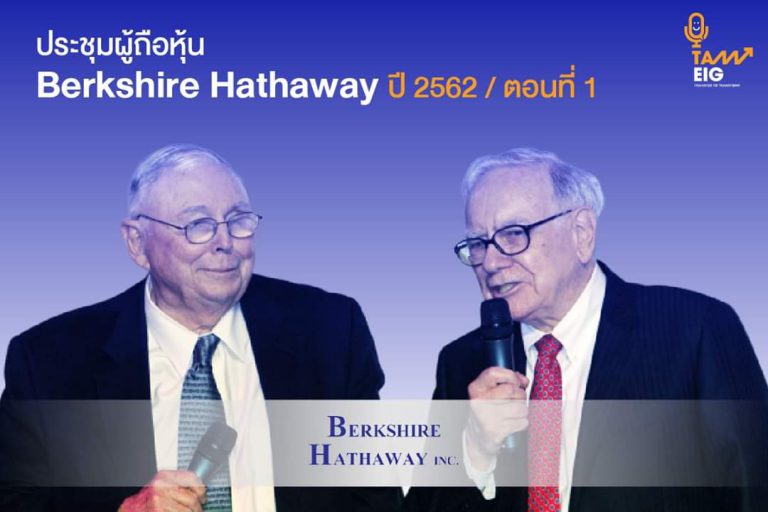By Paul A. Merriman (MarketWatch)
Published: Aug 19, 2015 10:52 a.m. ET
One of my favorite ways to learn is to remember pithy quotations that wrap a lot of wisdom into relatively few words. Nobody does that better than Warren Buffett.
In some of my favorite quotes, Buffett preaches patience, simplicity, index funds, and understanding the difference between what you know and what you don’t. He’s in favor of being smart, and against being dumb.
I’ll give you some examples, followed by my own comments.
Since this article is about learning, let’s start with this:
“What we learn from history is that people don’t learn from history.” When investors get either too fearful or too greedy, they sometimes hide behind the notion that “This time it’s different.” Usually they regret it.
On fear and greed
“Two super-contagious diseases, fear and greed, will forever occur in the investment community. The timing of these epidemics will be unpredictable. … We simply attempt to be fearful when others are greedy and to be greedy only when others are fearful.” This is the simple recipe for being a contrarian investor.
On patience, in three examples
“No matter how great the talent or efforts, some things just take time. You can’t produce a baby in one month by getting nine women pregnant.”
“Our favorite holding period is forever.” This is buy-and-hold investing, pure and simple.
“I don’t look to jump over seven-foot bars: I look around for one-foot bars that I can step over.” In my own view, index funds are the ultimate one-foot bar.
On sticking with what you know
“Risk comes from not knowing what you’re doing.”
“Diversification is a protection against ignorance.” I think he’s right on target here, and we all need this protection. We cannot possibly understand all the moving parts of the global economy and the myriad of investment choices available to us.
“Only when the tide goes out do you discover who’s been swimming naked.” In a bull market, everybody’s a genius. But a bear market reveals who’s got what it takes to achieve long-term success — and who doesn’t.
“Never invest in a business you cannot understand.” This is a good reason not to invest in individual stocks. I find it virtually impossible to understand the intricacies of any single company or a single industry. I can, however, understand an asset class with nearly 90 years of historical data. And I can invest in an index fund that captures that asset class.
“What counts for most people in investing is not how much they know, but rather how realistically they define what they don’t know.” Unfortunately, know-it-alls tend to place big financial bets. Failing to learn from their own history (see above), they keep doing so again and again.
On being smart and being successful
“You don’t need to be a rocket scientist. Investing is not a game where the guy with the 160 IQ beats the guy with 130 IQ.”
Along the same lines: “It is not necessary to do extraordinary things to get extraordinary results. … By periodically investing in an index fund, the know-nothing investor can actually outperform most investment professionals.”
My take on that topic: If you want above-average results with below-average risks, make regular investments in index funds and leave the money there until you need it.
Now let’s look at some other Warren Buffett gems that include his thoughts on the value of value investing, the non-value of predictions, following the herd, the tarnish of gold as an investment, and more.
On value investing
“Whether we’re talking about socks or stocks, I like buying quality merchandise when it is marked down.” That’s what value investing is all about.
On following the herd
“Most people get interested in stocks when everyone else is. The time to get interested is when no one else is. You can’t buy what is popular and do well.” Following the herd can be very dangerous. Just ask the many investors who staked their futures on technology stocks in 1999.
On predictions
“We have long felt that the only value of stock forecasters is to make fortune-tellers look good.” I’m amazed at how many investors take market forecasters seriously, even when they have no credible track records of success.
On losing money
“Rule No.1 is never lose money. Rule No.2 is never forget Rule No. 1.” Warren Buffet has broken both of these rules, as I’ve pointed out. Even so, he has amassed an enormous amount of wealth.
“The most important thing to do if you find yourself in a hole is to stop digging.” This can be interpreted as advice to sell your losing investments. But I think a better interpretation is this: When you realize you are doing something dumb with your money, stop it.
On good habits
“Chains of habits are too light to be felt until they are too heavy to be broken.” This next quote describes a very good habit.
“Do not save what is left after spending, but spend what is left after saving.” This is known as paying yourself first, and it works brilliantly for investors who develop this habit while they are young.
“You shouldn’t own common stocks if a 50% decrease in their value in a short period of time would cause you acute distress.” Losses like this are infrequent, but they are normal enough that you should expect them. You can significantly reduce this risk by adding bonds to your portfolio.
“With enough insider information and a million dollars, you can go broke in a year.” I have seen several investors lose everything because they followed what they thought was trustworthy inside information.
On gold
“I will say this about gold. If you took all the gold in the world, it would roughly make a cube 67 feet on a side … Now for that same cube of gold, it would be worth at today’s market prices about $7 trillion — that’s probably about a third of the value of all the stocks in the United States. For $7 trillion, you could have all the farmland in the United States, you could have about seven Exxon Mobil Corporations plus a trillion dollars of walking-around money. … If you offered me the choice of looking at some 67-foot cube of gold all day, … call me crazy, but I’ll take the farmland and the Exxon Mobil Corporations.”
My favorite Buffett quote
“You only have to do a very few things right in your life so long as you don’t do too many things wrong.” This is my favorite Buffett quote. Long-term success belongs to those investors who consistently focus on doing a few things right and on avoiding the worst errors.



